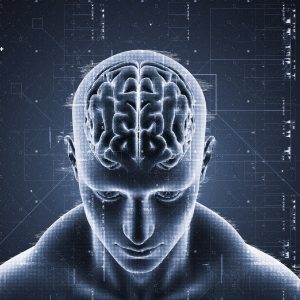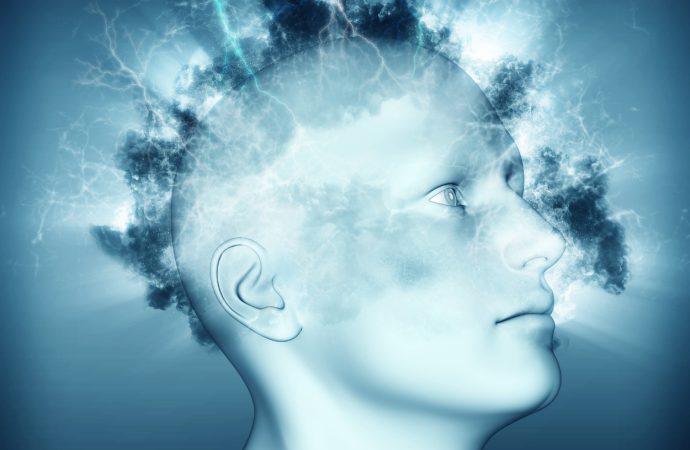Introduction: While we explore further into this age of technological progress, AI technology keeps penetrate all part of our everyday lives. Nevertheless, people have concerns regarding the moral consequences and probable perils linked to the swift growth of AI. With the invention of autonomous vehicles to customized recommendation algorithms, Artificial Intelligence has transformed our interaction
Introduction:
While we explore further into this age of technological progress, AI technology keeps penetrate all part of our everyday lives. Nevertheless, people have concerns regarding the moral consequences and probable perils linked to the swift growth of AI. With the invention of autonomous vehicles to customized recommendation algorithms, Artificial Intelligence has transformed our interaction with the environment. A notable example of the field of AI is the company’s ChatGPT application. This is an innovative AI model that emulates natural language discussions.
ChatGPT: A Brief Overview
Essentially, The AI model known as ChatGPT, created by OpenAI, functions as a language model trained with a large corpus of internet text. Utilizing the capability of artificial intelligence, specifically the transducer neural network structure, ChatGPT produces human-like content built on input it acquires. Nonetheless, it’s crucial to remember that ChatGPT functions as an artificial intelligence language model and lacks genuine comprehension or sentience. Nevertheless, it is crucial to comprehend that the ChatGPT model does not ‘comprehend’ written text in the fashion humans do so. Instead, it anticipates the following series of written content built on patterns gained in the course of its training.

Image by kjpargeter on Freepik
ChatGPT and Emotional Intelligence: An Analysis
In order to respond the question, it is necessary to analyze the parts of the emotional intelligence considering the capabilities of ChatGPT.
Self-Awareness and Self-Regulation:
For people, self-consciousness means cognition of someone’s nature, sentiments, and cravings. Conversely, self-control requires managing or redirecting disruptive feelings and adjusting to change. On the other hand, ChatGPT is devoid of feelings, wants, or awareness. Hence, authentic self-awareness and self-management transcend its abilities.
Empathy:
Understanding includes perceiving the moods from other persons and behaving appropriately. Chatbot is capable of replicating sympathy during human exchanges via generating grasping answers. However, the foundation is on educated patterns in contrast to real emotional grasp.
Motivation:
Unlike people, ChatGPT does not have self-motivations or aspirations. The ‘reason’ it possesses is exclusively determined by the specified duty it is programmed to fulfill. This is designed to generate text with a human-like quality utilizing the input given.
Social Skills:
ChatGPT imitates realistic text, establishing the belief of proficient interpersonal abilities. It produces replies following based on societal standards and hopes extracted from regularities in its learning dataset. This does does not possess social awareness.
A Facade of Emotional Intelligence
Based on the analysis above, it is evident that although ChatGPT can replicate elements of emotional intelligence, it does not actually grasp or go through emotions. The capability to produce deeply emotional reactions proves the coding and extensive data it underwent training on. In place of an inborn emotional capacity.
The difference is crucial as artificial intelligence becomes more integrated into sectors like counseling services or consumer assistance. Although ChatGPT can deliver immediate, understanding replies, users need to be aware that these systems lack the ability to understand human emotion as we do. These are programmed to produce text built on models and samples within the information they underwent training on.
Future Prospects
With the advancement of technology improves, we may observe progressively advanced artificial intelligence models capable of imitating emotional understanding with enhanced precision and exactness. Nevertheless, it is crucial to keep in mind that artificial intelligence can never truly emote similar to humans. Especially in psychological well-being or user care, where empathy is crucial. Nevertheless, regardless of the level of advancement these models evolve, users need to remember that they are only emulating emotional comprehension. The people not really going through it.
The arrival of AI technology that can understand emotions may also trigger conversations regarding the moral consequences of AI. For example, if an artificial intelligence is incredibly persuasive in its imitation of emotional responses that individuals form emotional bonds with it. What obligations do developers of AI need to guarantee the AI functions ethically and morally? What occurs if artificial intelligence delivers encouraging recommendations bringing about unfavorable results?
Conversational AI and EQ – Strengths and Weaknesses
Pros:
Consistency: The AI model can consistently offer emotionally tuned replies without being affected by individual sentiments.
Scalability: ChatGPT is capable of handling multiple oversee multiple dialogues, a feat that cannot be achieved for an individual to manage.
Learning Tool: ChatGPT serves as a learning resource to gain knowledge of emotional intelligence and its practical use.
Non-Judgmental: ChatGPT refrains from passing judgment on users, potentially promoting an environment for individuals to openly express their emotions.
Empathy Training: It is possible to employ to enhance empathy skills, enabling individuals to comprehend and train in showing empathy.
Language Learning: ChatGPT can help in acquiring a language, displaying how to share feelings adequately.
Therapeutic Writing: Communicating with ChatGPT concerning individual sentiments may provide healing advantages, comparable to keeping a journal.
Dialogue Simulation has the capability to give a replication of sophisticated emotional exchange. That is particularly useful for persons who are developing their interpersonal abilities.
Crisis Management Training: ChatGPT is applicable during simulated situations for teaching individuals in managing highly emotional circumstances. As an illustration, it can be used as part of customer service training to replicate and train managing tough customers.
Cons:
Lack of Genuine Understanding: ChatGPT is required to comprehend the true essence of human emotions. Only it imitates emotional perception grounded on the training dataset it used.
The possibility of not comprehending or misjudging subtle human feelings endures. The following may lead to unsuitable answers.
Because ChatGPT lacks feelings, it lacks of authentic emotional exchange in engagements with the AI.
Potential Dependence: Users have the potential to over-reliant on ChatGPT for support with their emotions. Nevertheless, it is crucial to remember that the ChatGPT algorithm cannot substitute human relationships.
Chatbot has the potential to oversimplify complicated emotional problems. Nevertheless, it is crucial to observe that the lack of ability to understand the extent of human feelings may be a restricting aspect in grasping and tackling these concerns effectively.
Lack of Contextual Understanding: ChatGPT might need support to respond correctly to emotional conditions. Such circumstances frequently demand a thorough grasp regarding the context or background.
Unpredictability: Being an AI, ChatGPT occasionally create unforeseen or improper replies. That can result in emotional painful or perplexing for users of the platform.
Risk of Dehumanization: Excessive dependence on AI when interacting emotionally might lead to dehumanizing our communication and bonds. Nevertheless, integrating AI in a careful and equitable manner can enrich our lives and present new prospects for communication and comprehension.
Ethical Concerns: There are ethical concerns related to the simulation of AI emotional intelligence. Such worries involve the possibility of manipulation or dishonesty.

















Leave a Comment
Your email address will not be published. Required fields are marked with *